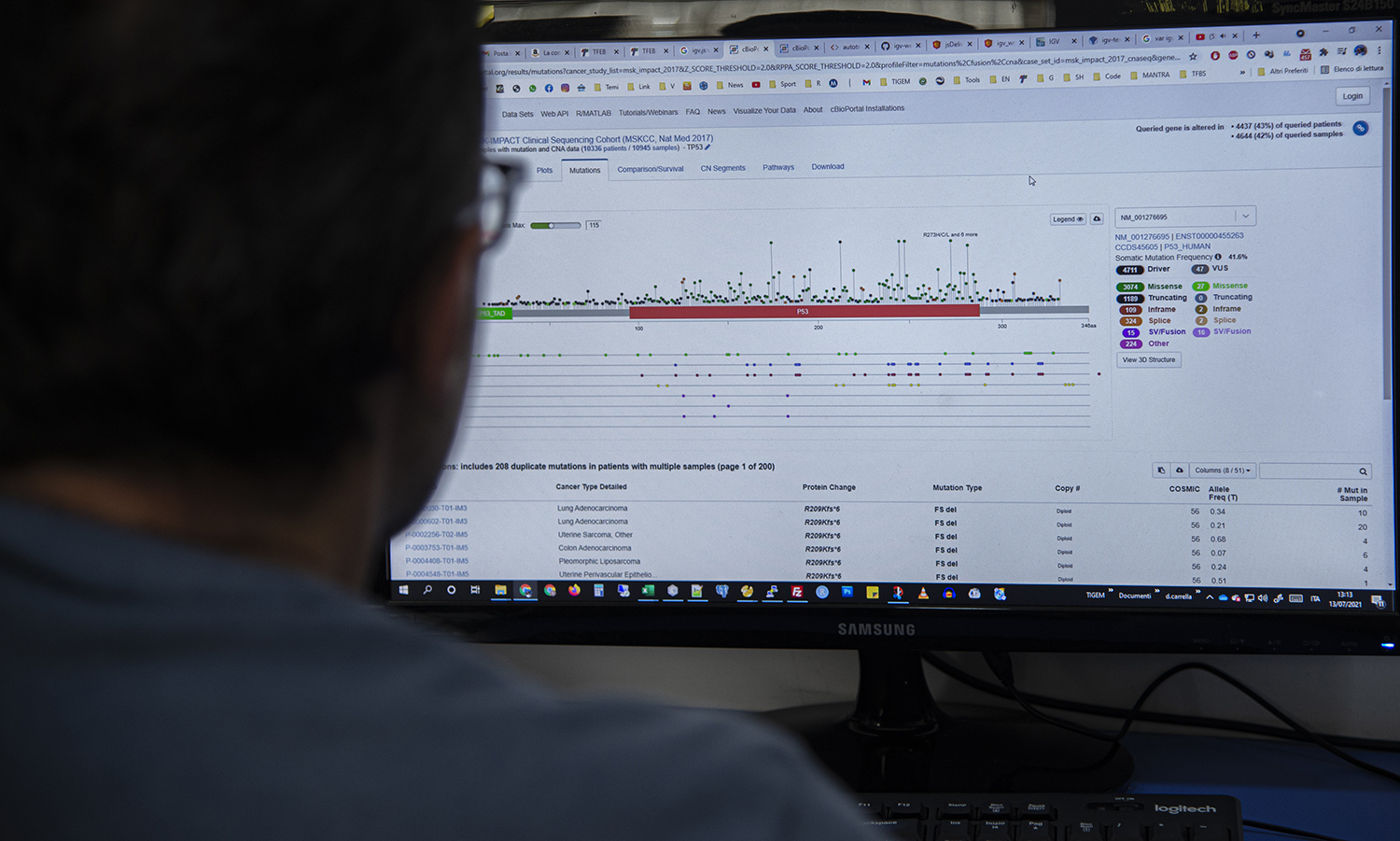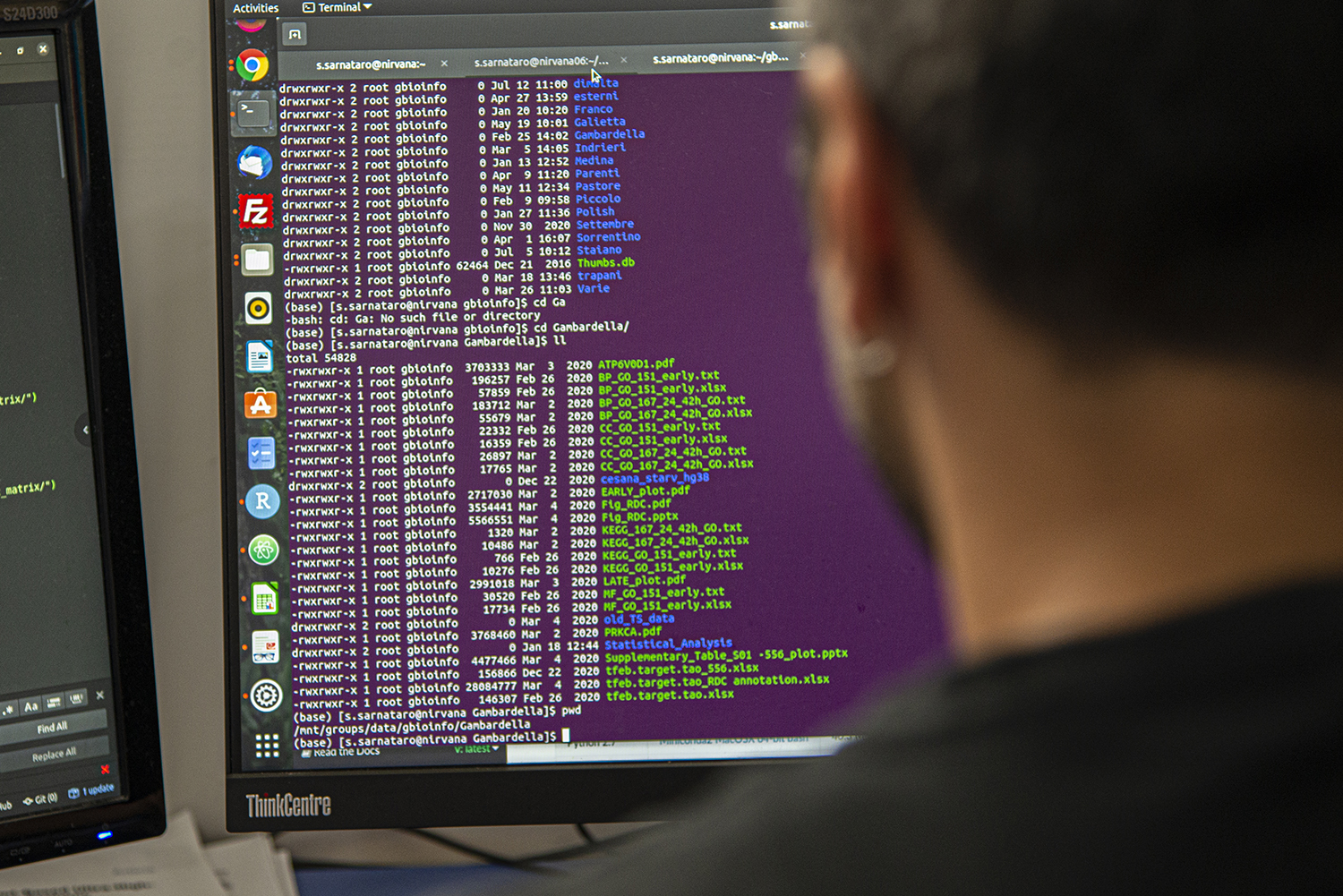CORE FACILITY
Bioinformatics


The dramatic evolution of new technologies and their impact on research in the fields of genetics and molecular biology have made the Bioinformatics Core (BC) an indispensable resource for TIGEM. The mission of this Core is to enhance the quality of research through the provision of bioinformatic and statistical expertise in hypotheses formulation, modelling, large-scale data analysis, and biological interpretation.
The Bioinformatics Core supports TIGEM’s research community in addressing a wide variety of biological questions from genomics to transcriptomics using state-of-the-art computational approaches. Our day to day work involves developing widely-applicable software tools, which are made available to the TIGEM community on the BC website and aim to address the most frequently occurring Bioinformatic tasks. Additionally, we often deal with requests from the TIGEM community, to support specific projects or experiments. Moreover, the BC regularly organizes hands-on training courses to disseminate awareness of bioinformatics and statistics within the TIGEM community. Documentation is also published and regularly updated on the BC website.
Individual research groups can now easily perform genome-wide experiments, although the specific expertise needed to analyze the resulting large-scale data requires interdisciplinary expertise that is not usually available within the research group. The BC provides such expertise and keeps up-to-date with cutting edge technologies and solutions. BC members work closely with the researchers as a team and interact with them during the entire experiment and the subsequent analytical process.
Next Generation Sequencing (NGS) technologies are now available for TIGEM researchers. With its ability to simultaneously sequence hundreds of thousands of DNA or RNA fragments, NGS has dramatically changed the landscape of genetics and genomic studies and opened up a broad range of genome-wide applications. NGS technologies produce data on an unprecedented scale and thus analysis requires combined computational and molecular biology expertise, adequate hardware equipment for parallel computing, and terabytes of storage space to manage and analyze such data. With time, the BC has acquired the skills and computational power required to analyze NGS data and now provides complete support for a number of NGS applications (RNA-, ChIP- and Exome-seq).
The Bioinformatics Core expertise can be broadly divided in the following main areas, although significant overlap exists within them:
- Statistical data analysis
- Genomics, Transcriptomics and Proteomics
- Image processing
- Training
